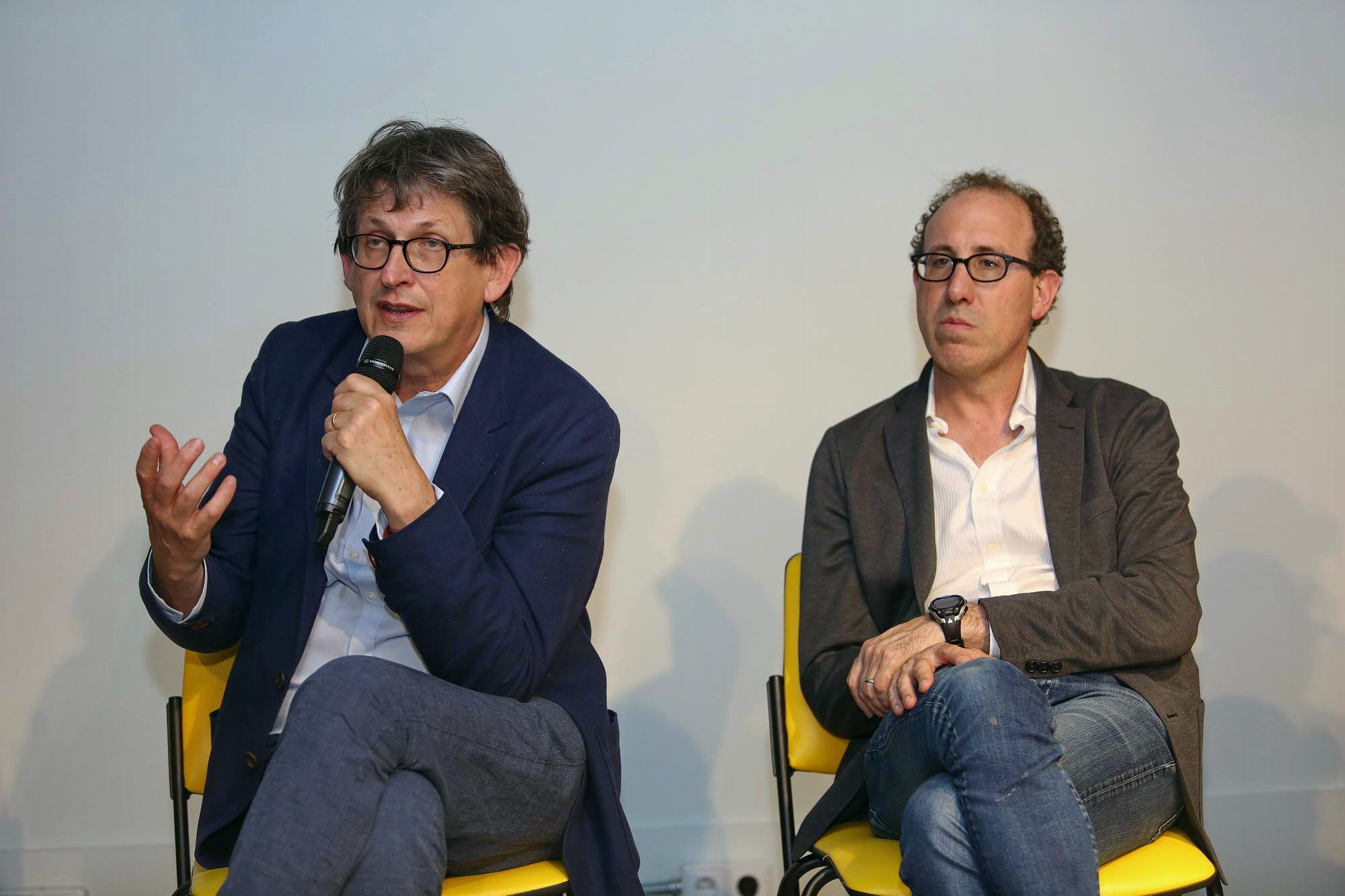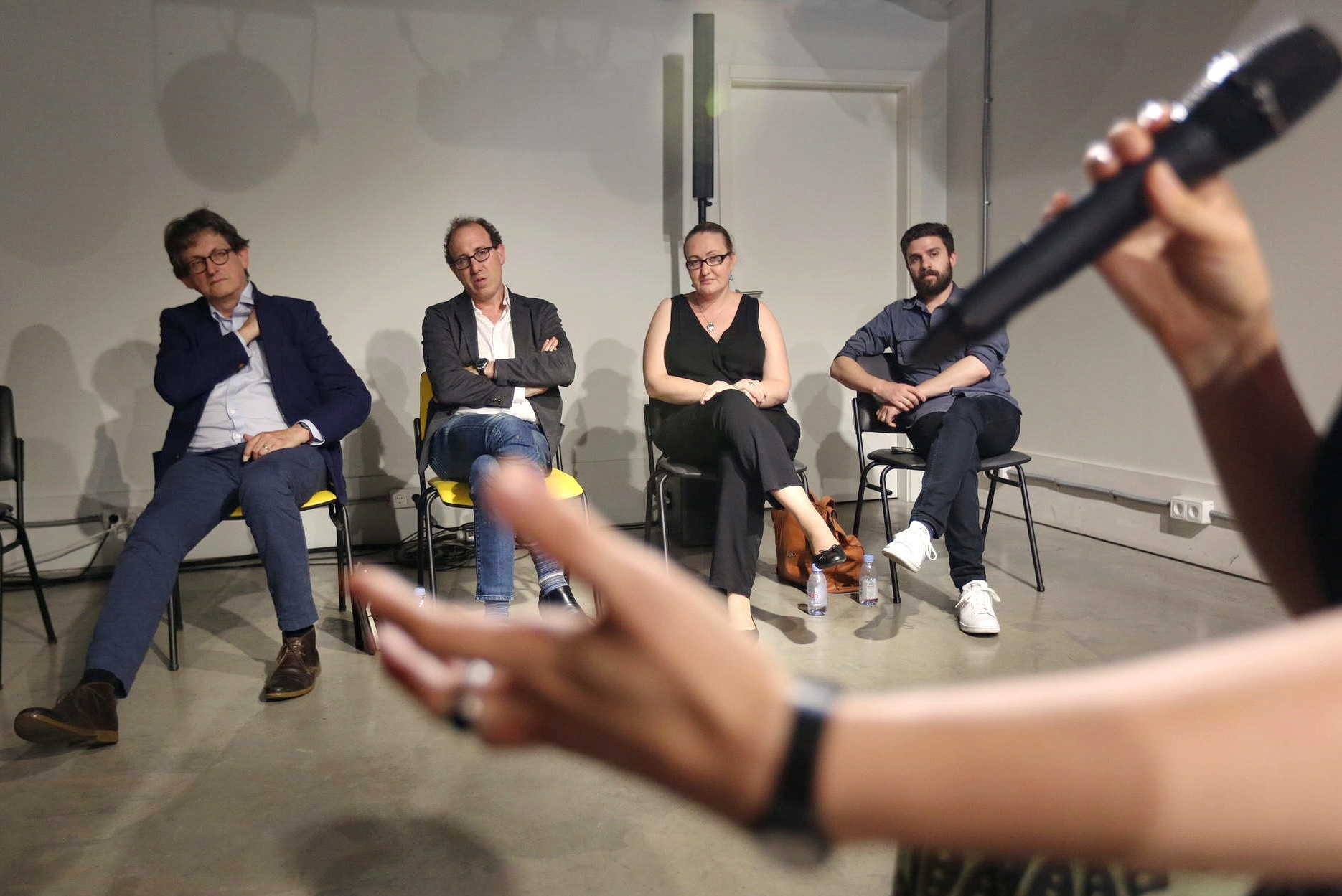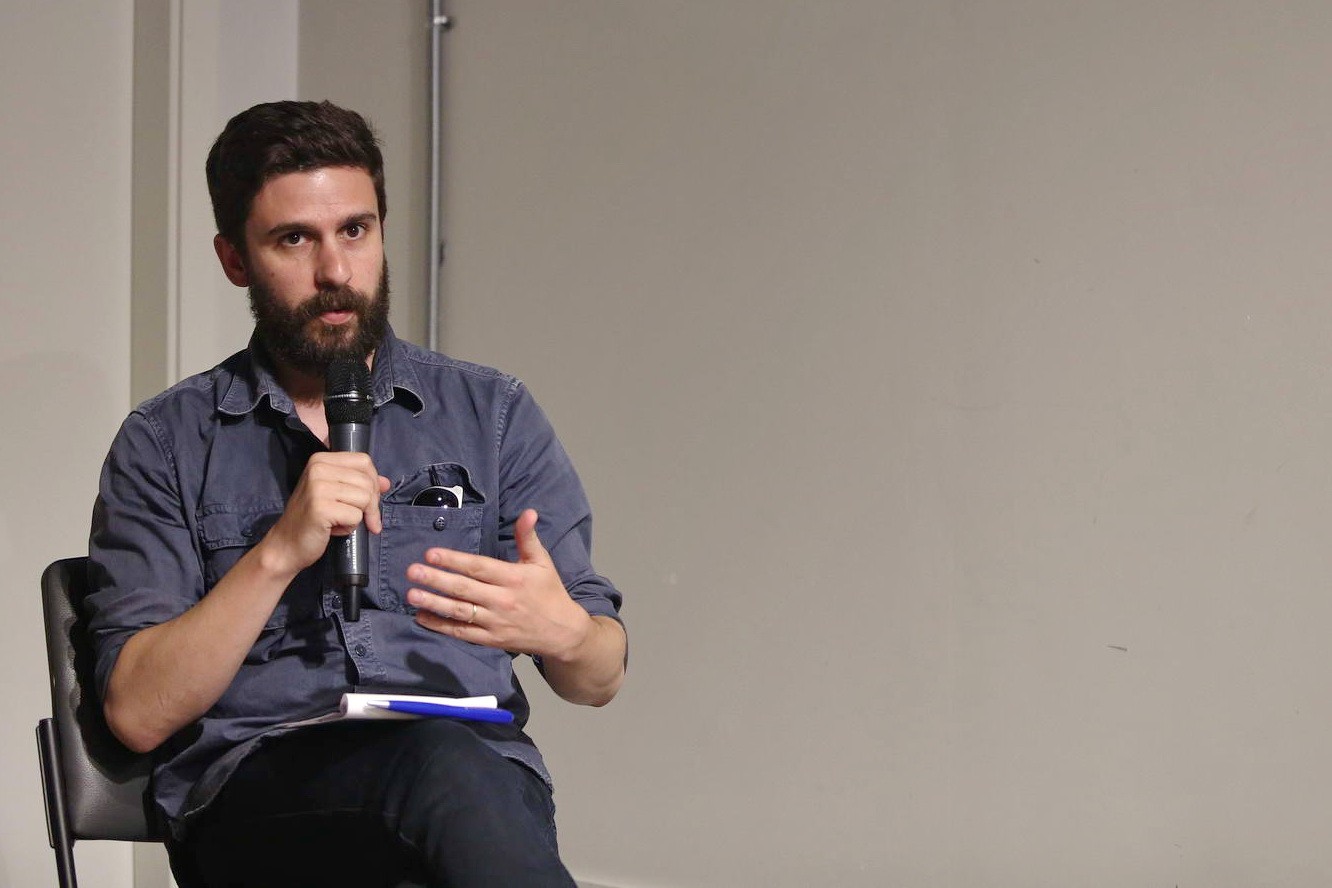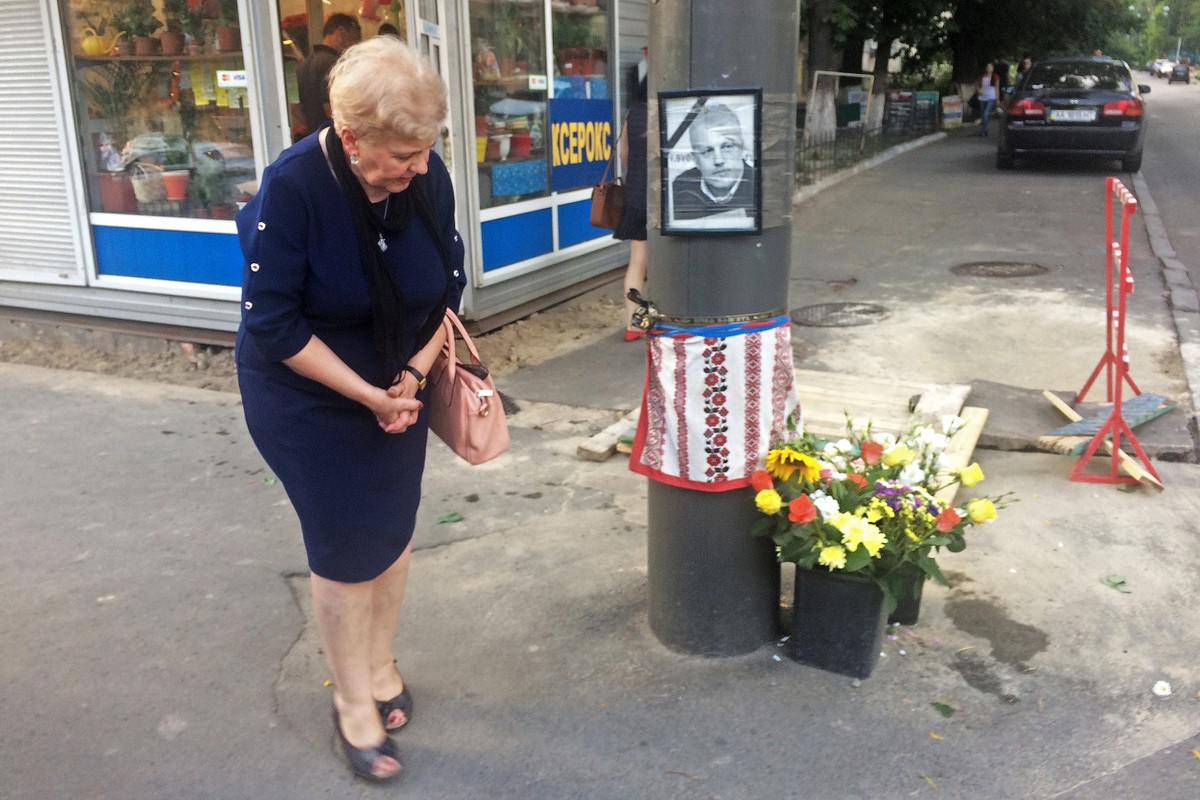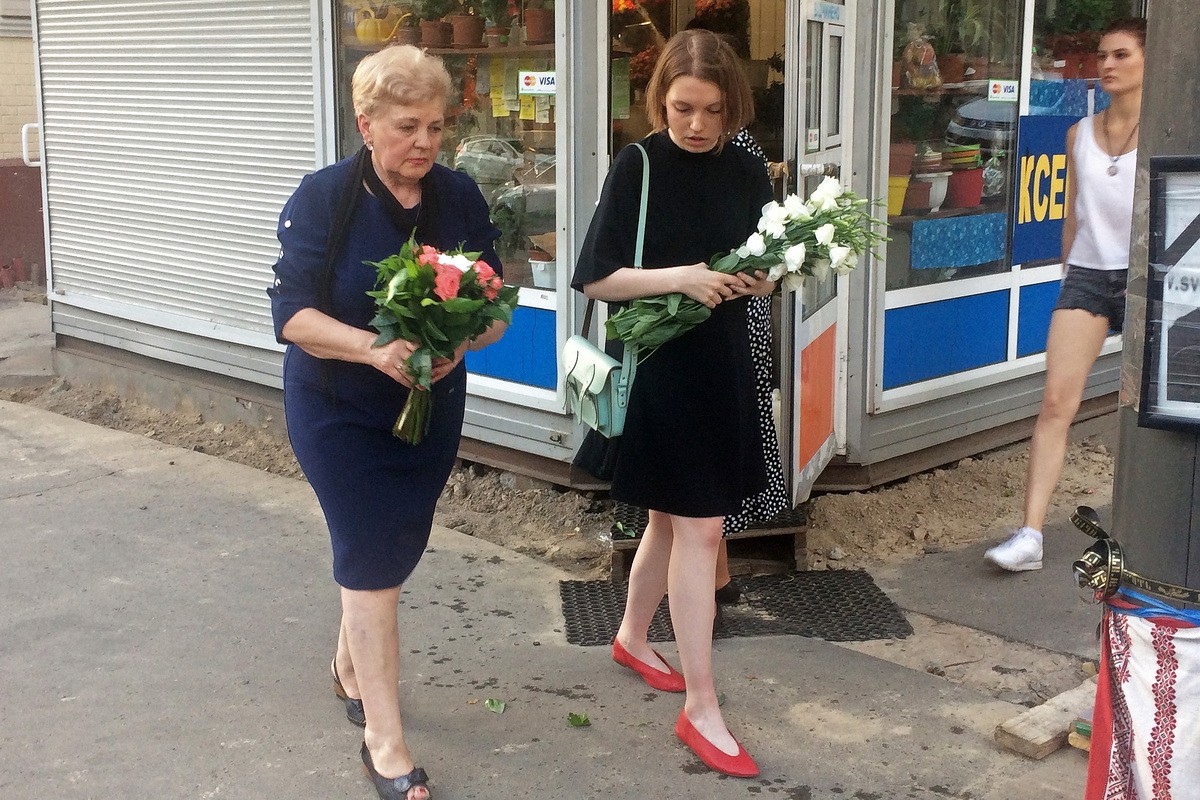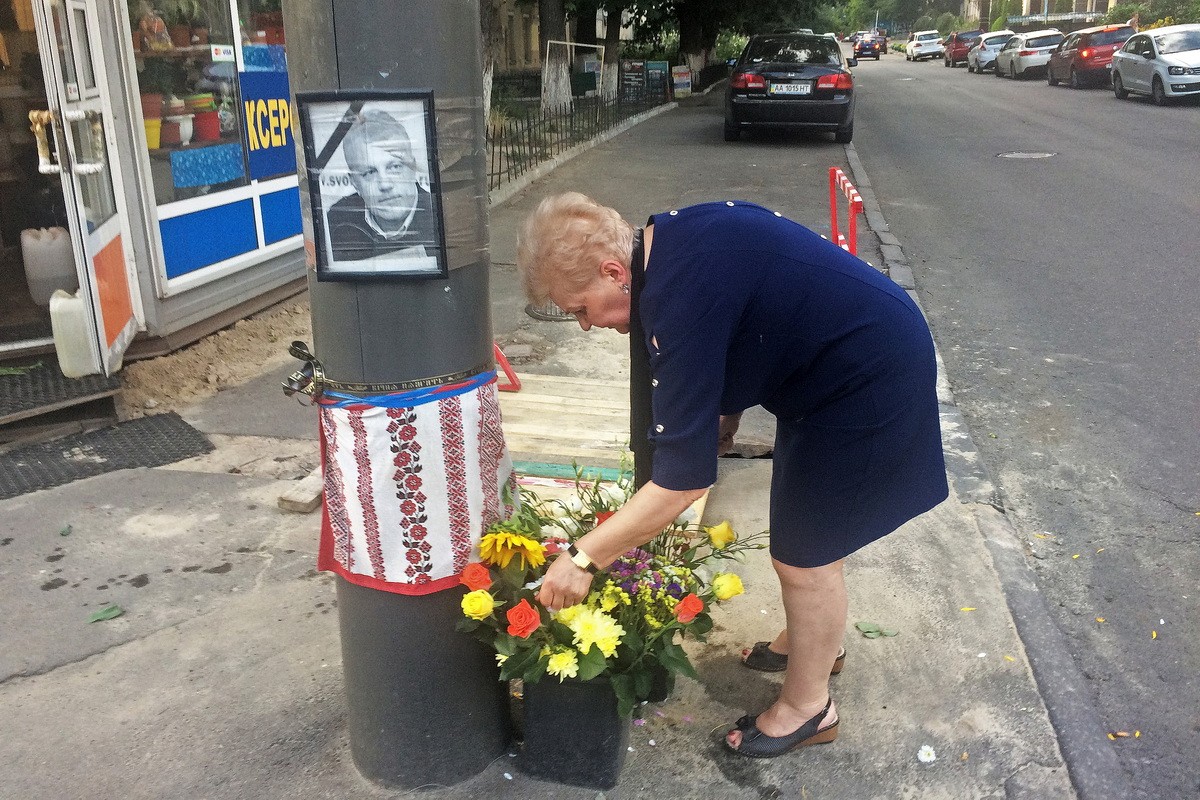A year after leading journalist Pavel Sheremet was assassinated in a car bombing in Kyiv, the official investigation has drawn a blank.
The Belarusian journalist, who had lived and worked in Ukraine for years, was killed in a horrifying blast early on July 20 as he was driving to work as host of a radio show.
Despite the usual official pledge to solve the case quickly, no one has been arrested and no progress has been reported. Journalists suspect incompetence, or worse, a cover-up.
In April, a documentary “Killing Pavel,” produced by four journalists of Organized Crime and Corruption Reporting Project and Slidstvo.info, revealed that the investigation had missed key witnesses and clues.
In fact, the evidence revealed in the film is the only visible advance in the case.
The failure of the authorities to properly investigate the case was highlighted again in a special report on the Sheremet case released on July 12 by the Committee to Protect Journalists, an international media advocacy organization.
After discussing the case with President Petro Poroshenko and other top officials, CPJ officials said it was hard to figure out who was leading the investigation.
“There is a big degree of confusion in who’s doing what,” said Nina Ognianova, Europe and Central Asia Program Coordinator with CPJ.
“Every time we asked, we were given a different name,” said Christopher Miller, a Kyiv-based journalist and a former Kyiv Post reporter, who authored the report.
Finally, they were told Dmytro Storozhuk, the deputy head of Prosecutor General’s Office, is in charge of the investigation. The SBU, according to the meetings’ participants, had a supporting role in the investigation and was assisting when requested.
On July 11, nearly a year after the murder, Poroshenko agreed to invite international investigators to work on the case.
One year later
Immediately after her father was murdered, Elizaveta Sheremet thought that at least the people who carried out the killing would be found.
“But a whole year’s passed,” she says and shrugs. “It’s a very long time. It’s much harder to find them now.”
A 21-year-old recent college graduate living in Moscow, she talked to her father the day before the murder. Later that week he was to fly to Moscow for her brother’s birthday.
But as he was driving to host his morning show on Radio Vesti on July 20, a bomb underneath the driver’s seat of the car detonated. CCTV footage later showed that the bomb had been planted the night before by an unidentified woman accompanied by a man.
The car belonged to Sheremet’s partner, Olena Prytula, the co-founder and owner of Ukrainska Pravda, a popular online news publication, where Sheremet also worked. That prompted speculation that Prytula was the real target or that the murder was a way to intimidate her and Ukrainska Pravda.
Right after the attack, President Petro Poroshenko said that it was “a matter of honor” to find the murderers. Other top officials echoed him.
The authorities said they were focusing on several lines of investigation, suggesting that the murder was ordered by someone in Ukraine, Russia, or Belarus, and a number of possible motives, including Sheremet’s work, private life, and financial issues.
Journalists step in
After months of no progress, the ice congealing on case seemed to crack a little in April, when a documentary on the case revealed some vital evidence investigators had missed.
“Killing Pavel,” a film produced by the journalists of Organized Crime and Corruption Reporting Project, a Kyiv Post partner, and Slidstvo.info, and released in May, found several witnesses that were never contacted by investigators.
One of them was Ihor Ustymenko, a former officer of the Security Service of Ukraine, who spent several hours loitering near Sheremet’s car shortly before the murder. He was brought in for questioning. The officials in charge of the investigation told Miller that Ustymenko’s story checked out and he wasn’t a suspect.
The documentary’s findings suggest that the investigation has been botched. And while it seemed at first that the new revelations could rekindle the investigation, hope dissolved again as weeks passed without progress.
Key report
Fresh impetus to investigators might come with the release of the 26-page report on the Sheremet case by the CPJ on July 12.
Several board members came to Kyiv to highlight the report’s release and to discuss the investigation with Poroshenko, the Prosecutor General’s Office, Ukraine’s SBU security service, and the National Police.
But a series of high-office meetings left more confusion than clarity in the case. Several people in the meetings told the Kyiv Post that they struggled to figure out who exactly was in charge of the investigation or how far it got.
Still, CPJ Executive Director Joel Simon said that the meetings left him a bit more reassured about the future of the case than before, despite the past failures of the investigation.
“I don’t think anyone is happy. We’re not happy,” ” Simon said. “The fact is, it’s been a year. We don’t have any suspects or leads. We don’t even have any visible progress.”
According to him, the top officials once again expressed commitment to solving the case, but also acknowledged that mistakes had been made during the investigation.
“We have to be optimistic, because what choice do we have?” Simon said.
Justice expected
On the evening of July 11, the late journalist’s mother Lyudmila Sheremet, along with his daughter Elizaveta, came to lay flowers on the intersection of Ivana Franka and Bohdana Khmelnytskoho Streets, where Sheremet’s car exploded.
People and cars were passing by as the two women placed white flowers next to a framed portrait of their late son and father.
“Of course, I want to know who did this to my son,” Lyudmila Sheremet said. “But it is Ukraine’s leadership that needs this investigation the most. They need to show that they are capable and can protect their people.”
